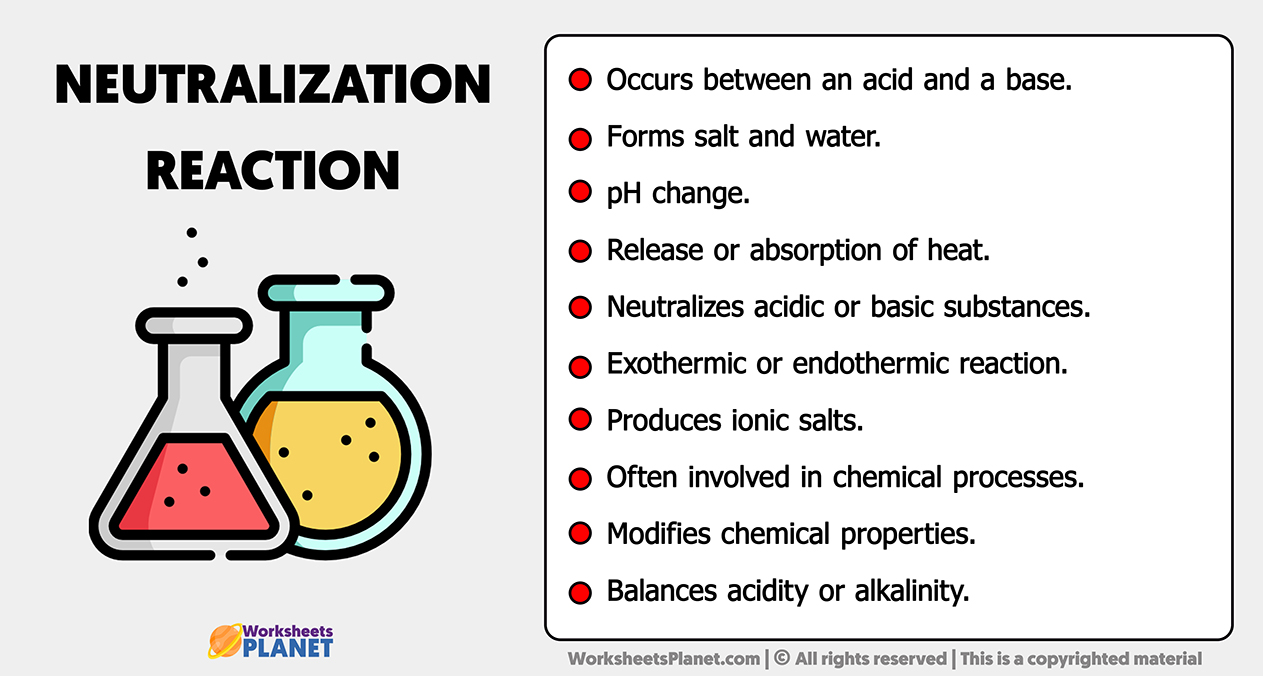A neutralization reaction occurs when an acid and a base combine to form water and a salt. The acid donates a proton (H⁺) to the base, forming water, and the remaining ions combine to create a salt.
This process neutralizes the acidic and basic properties, resulting in a solution with a more neutral pH. It is a fundamental concept in chemistry and occurs in various practical applications.

- Occurs between an acid and a base.
- Forms salt and water.
- pH change.
- Release or absorption of heat.
- Neutralizes acidic or basic substances.
- Exothermic or endothermic reaction.
- Produces ionic salts.
- Often involved in chemical processes.
- Modifies chemical properties.
- Balances acidity or alkalinity.

